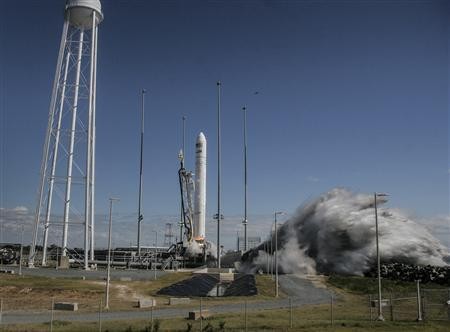After the initial delay, the second attempt to send the Cygnus spacecraft back into orbit was once again cancelled due to unfavorable weather conditions.
The first attempt to re-launch the private spacecraft into orbit was on Dec. 3. However, due to bad weather, the launch was cancelled and moved to Dec. 4. The second was once again interrupted by bad weather.
United Launch Alliance program manager for NASA missions Vern Thrope told Space, "The winds were just a couple of knots too high. We take a very conservative approach to these launches, and we just didn't feel comfortable launching today."
The Cygnus spacecraft will launch into space atop the United Launch Alliance Atlas V rocket. The spacecraft will launch from Florida's Cape Canaveral Air Force Station.
Thorp and his team will try to launch the spacecraft once again on Dec. 5 at 5:10PM EST.
The Cygnus is an unmanned spacecraft. It will carry around four tons of supplies to the International Space Station. The project is part of the $1.9 billion deal between NASA and Orbital ATK, the owner of Cygnus. About one-third of Cygnus' haul are supplies for science experiments that are conducted in space.
The latest launch will mark Cygnus' fourth cargo trip for NASA and the spacecraft's first flight since October 2014. It was cancelled back in 2014 after the Antares rocket that normally carries the spacecraft to space exploded seconds after liftoff, according to Engadget. The explosion destroyed all of Cygnus' payload.
The Antares rocket project was currently halted and will return to commission space flights in 2016.


